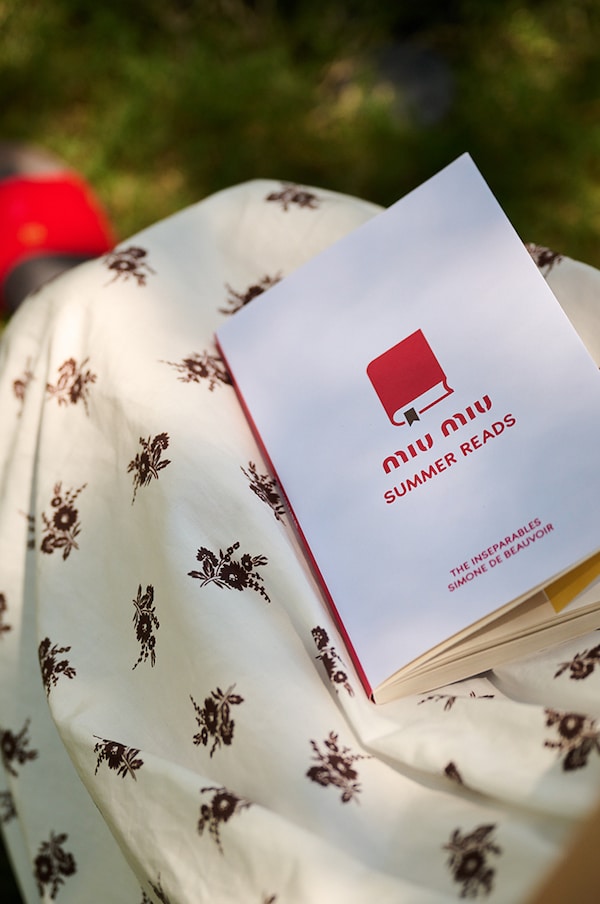Miu Miu Summer Reads 2025
Now in its second iteration, Summer Reads is an activation curated by Miu Miu, designed to enrich contemporary thought and community life through the power of the written word. This time, the initiative moved to some of the most iconic and atmospheric green spaces in Beijing, Hong Kong, Milan, Osaka, and Paris, transforming public gardens and urban parks into places for reading and reflection. The events took place on June 27th and 28th in Beijing, Hong Kong, Milan, and Paris, and on June 28th and 29th in Osaka.
Open to the public, Miu Miu Summer Reads invited guests to enjoy an immersive space, with every city distinguished by its own colour and an ex-libris symbol - a nod to the value of books. At the heart of the project was a curated selection of works by two visionary women writers: Simone de Beauvoir and Fumiko Enchi. Visitors were gifted copies of The Inseparables and The Waiting Years, both customized for the occasion with exclusive Miu Miu-designed dust covers, bookmarks, metal reading clips, and stamps.
Simone de Beauvoir
Simone de Beauvoir was born in 1908, in Paris into a bourgeois Catholic family. A gifted student, she studied philosophy at the Sorbonne, passing the agrégation exam in 1929 as its youngest candidate. That year, she met Jean-Paul Sartre, forming a lifelong, non-monogamous intellectual partnership. Her close friendship with Zaza Mabille, who died in 1929, deeply affected her and inspired her posthumously published novel The Inseparables (2020). De Beauvoir taught philosophy in the 1930s but was dismissed in 1941 under Nazi occupation. She became a defining feminist voice, challenging gender norms. De Beauvoir died on April 14, 1986, and was buried alongside Sartre in Montparnasse Cemetery. De Beauvoir’s writings explored morality, agency, and social structures. The Second Sex (1949) revolutionized feminist thought. Notable novels include The Blood of Others (1945), All Men Are Mortal (1946), and The Mandarins (1954), which won the Prix Goncourt.
Fumiko Enchi
Fumiko Enchi (1905–1986) was a Japanese writer and playwright known for her profound exploration of gender, sexuality, and the oppression of women in patriarchal society. Born in Tokyo as Fumi Ueda, she was heavily influenced by her father, a linguist, and her grandmother’s storytelling. Despite health struggles and being denied formal higher education, she pursued extensive private studies. Enchi began her career in theater but later transitioned to prose, gaining recognition in the 1950s. Her notable works, such as The Waiting Years (1957) and Masks (1958), often reinterpreted classical Japanese literature, particularly lady Murasaki Shikibu’s eleventh-century narrative work The Tale of Genji, which she translated into modern Japanese. A pioneer in addressing female aging and sexuality, Enchi blended modern psychological insight and traditional cultural elements, such as the complex range of female masks used in Noh dramas, to portray unhappy women. Her contributions earned her Japan’s highest cultural honor, the Order of Culture, in 1985, as well as prestigious awards such as the Noma Literary Prize and the Women’s Literature Prize. Enchi remains a seminal feminist voice in Japanese literature today.










